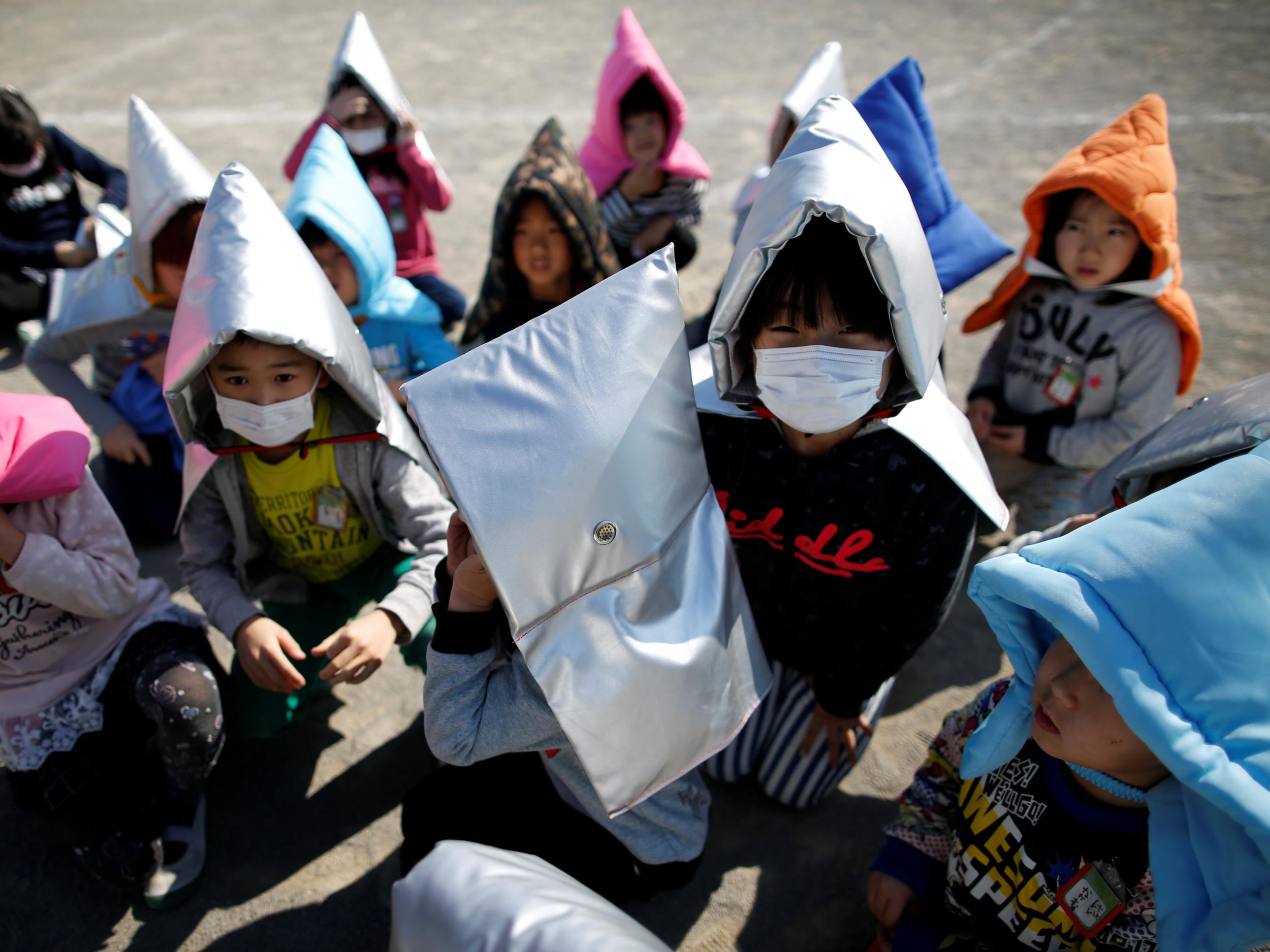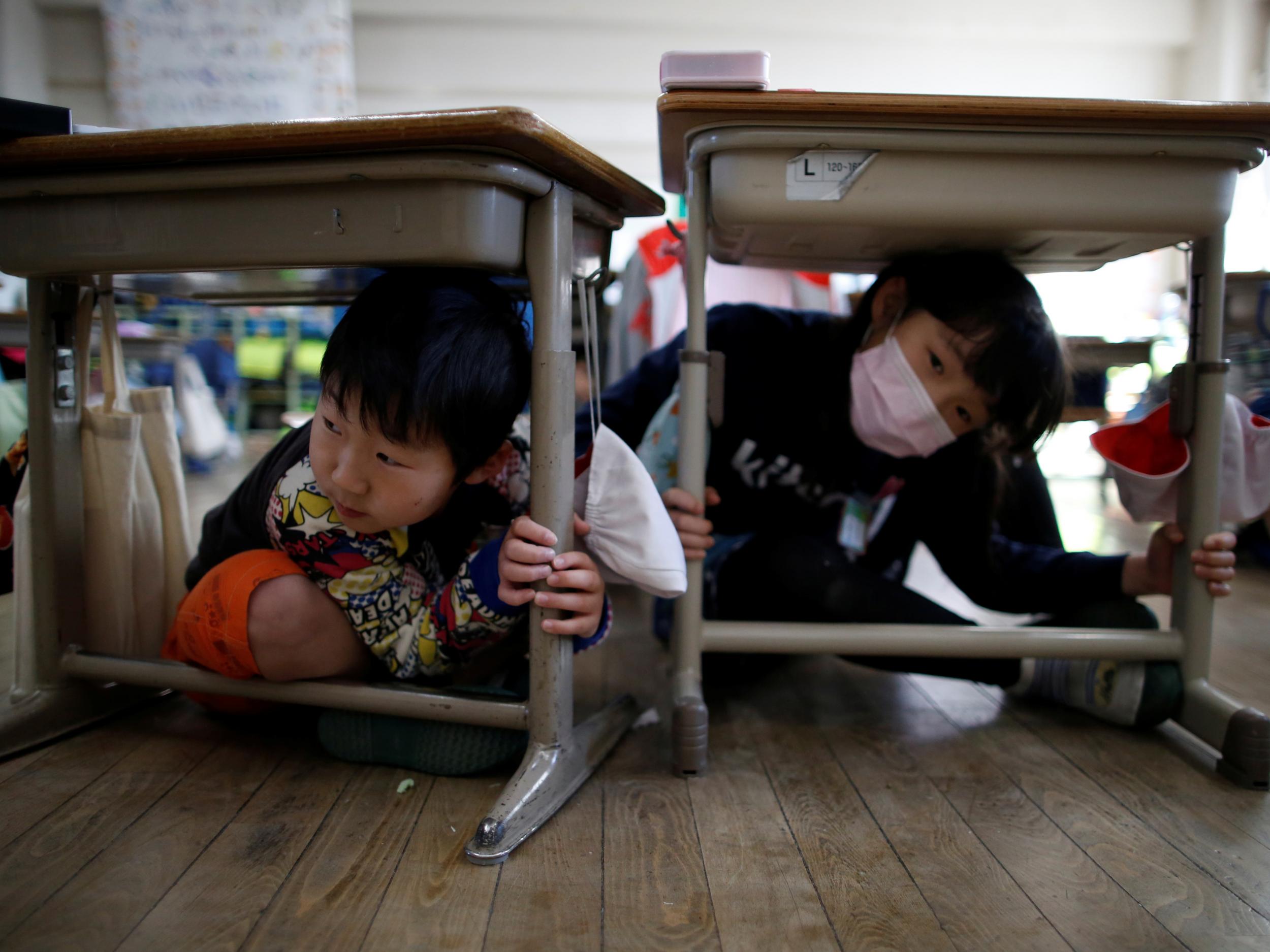Japanese school children who survived Fukushima meltdown are being subjected to ‘nuclear bullying’
Discrimination suffered by evacuee pupils likened to that faced by those who lived through atom bomb blasts of Second World War

Your support helps us to tell the story
From reproductive rights to climate change to Big Tech, The Independent is on the ground when the story is developing. Whether it's investigating the financials of Elon Musk's pro-Trump PAC or producing our latest documentary, 'The A Word', which shines a light on the American women fighting for reproductive rights, we know how important it is to parse out the facts from the messaging.
At such a critical moment in US history, we need reporters on the ground. Your donation allows us to keep sending journalists to speak to both sides of the story.
The Independent is trusted by Americans across the entire political spectrum. And unlike many other quality news outlets, we choose not to lock Americans out of our reporting and analysis with paywalls. We believe quality journalism should be available to everyone, paid for by those who can afford it.
Your support makes all the difference.“Radiation! Bang bang!”
Gesturing as if with guns, two boys in Tokyo repeatedly taunted a girl whose family fled to Japan's capital to escape radioactivity unleashed by the Fukushima nuclear crisis of 2011.
Tormented by headaches and weight loss, the girl began to skip classes, and switched schools to escape the bullies, her mother told Reuters. But the very radiation that uprooted the family brought more pain in her new home.
“For her to be called 'radioactive' was heartbreaking,” said the mother, speaking on condition of anonymity.
Six years after an earthquake and tsunami sparked the Fukushima meltdown, several cases of “nuclear bullying”, as the Japanese media calls them, have prompted discrimination similar to that suffered by survivors of the World War Two atom bombs.
Japan has long grappled with bullying, but discrimination against Fukushima evacuees is a serious problem, with a government panel last month urging greater efforts to safeguard such children.
It called for better mental care in schools and asked teachers to improve their understanding of the disaster's likely psychological and physical effects, besides watching for signs of bullying, so that it can be stopped.
Discrimination over the March 11 2011 nuclear calamity, the worst since Chernobyl in 1986, appears widespread. Nearly two-thirds of Fukushima evacuees faced prejudice or knew of some who did, a recent poll by the Asahi newspaper showed.
One boy suffered years of bullying after fleeing from Fukushima aged around 8, a regional educational board found in an investigation prompted by the family's lawyers.
Students in his new home in Japan's second largest city of Yokohama hit and kicked the boy, calling him a “germ.” They also demanded a share of the evacuee compensation they believed he was receiving.
The boy, who is now 14 and wants to remain anonymous, paid them 1.5 million yen (£10,700) to avoid physical abuse, the family's lawyer said.
“I thought of dying many times,” he wrote at the time. “They treated me like a germ because of the radiation.”
The board had initially refused to investigate, heeding only the written request of the lawyers, said one of them, Kei Hida.
Bullying, known as “ijime,” is one aspect of the immense pressure facing Japanese children to conform, with the most recent data showing a record 224,540 cases in 2015.
The new guidelines for disaster-stricken children supplement laws adopted four years ago requiring better measures in schools to detect, and prevent, bullying.
The scale of abuse is impossible to gauge, as child evacuees rarely protest.
But more than half face some form of it, said Yuya Kamoshita, leader of an evacueesâ rights group. “Evacuees tend to stick out, and are easily categorised as 'different', which makes them prone to bullying,” he said.

Schools and education boards' efforts to tackle the problem have fallen short, he and other lawyers said.
The cases are reminiscent of victims of the 1945 bombings of the cities of Hiroshima and Nagasaki, whose radiation exposure led to discrimination in marriage and at work over mistaken fears of infection, or birth defects in their children.
The bullying of Fukushima evacuees springs from similar prejudice, say victims, raising fears of the treatment they will encounter as adults.
“Children who were in Fukushima may be unable to get married when they grow up, or their husbands may wonder whether they can have babies,” said the girl's mother, who is from Iwaki, a city 50 km (31 miles) south of the nuclear plant.
“I think this anxiety will stay with her.”
Bullying has a corrosive effect, said Masaharu Tsubokura, a Fukushima doctor who has treated disaster survivors and worked to spread understanding of radiation.
“Some children can resist bullying, they can talk back,” he said. “But others cannot, they just hide themselves away. They lose their confidence and dignity.”
Reuters
Join our commenting forum
Join thought-provoking conversations, follow other Independent readers and see their replies
Comments